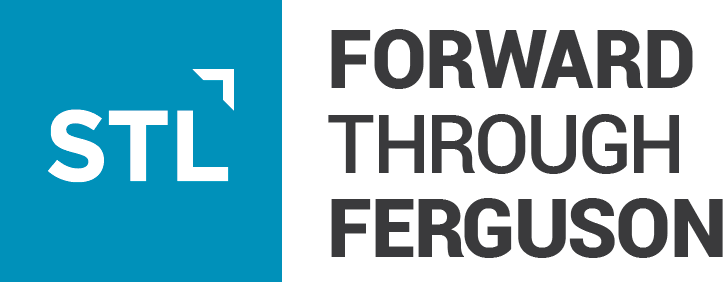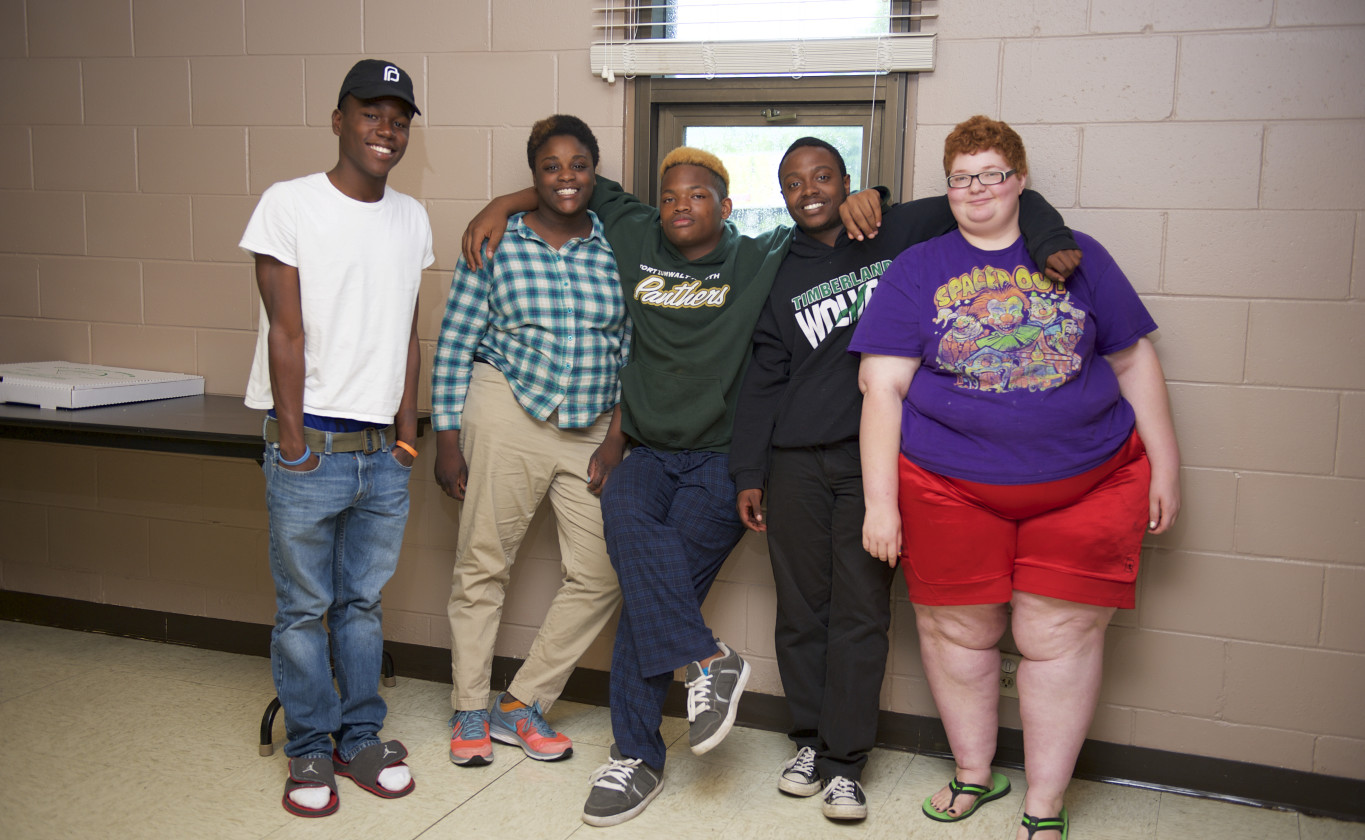Since the death of 18-year-old Michael Brown on August 9, 2014, youth have been presented as a demographic uniquely affected, and mobilized, by events in Ferguson. Local, national, and global media have published stories with interviewees ranging from their mid-teens to mid-20’s, most focusing on participation in or leadership of protests aimed at making change.
There’s no doubt such coverage has helped “give voice” to “the youth,” who are sometimes spoken for rather than spoken with regarding issues that directly affect them. What we’ve seen, read, and heard from some young people – especially those in more visible roles; or part of well-organized, vocal groups – offers important insights into why Ferguson matters to them. The Commission, too, has sought youth perspectives twice since its inception, with its most recent event focused on the arts as a means of expression and participation.
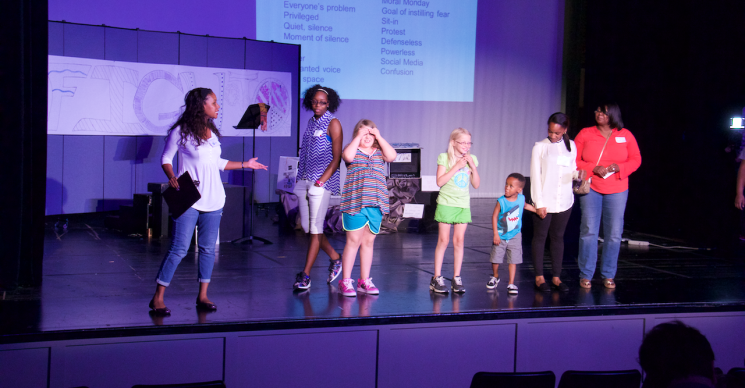
One group of participants in the theatre section stand on stage at the Ferguson Commission’s Arts Speak! event.
But even the best intentions have their limitations. That is, it’s impossible to talk to everyone. As for social media, that only goes so far; not every person under 26 with something to say is putting it out on Twitter, Facebook, or YouTube. So while media and other kinds of coverage provide snapshots of “youth perspective,” understanding the depth, and breadth, of viewpoints and lived realities has to come from seeking out opportunity to hear from our communities’ young people.
An early summer conversation with a dozen youth ages 12 and 20 drove home how wide-ranging and “mature” youth perspective can be. Although the interview took place at an agency in St. Charles, none of participants were from that area; several had been in or near North County, or had friends or relatives, in Ferguson when things “popped off.”
Like their adult counterparts, they had different opinions about why unrest occurred. One youth addressed the part civilian/law enforcement tension played by sharing from personal experience:
“I was in Dellwood, and had just got out of school. There were these dudes on my street, shooting at people across the street from my house. I was outside afterwards, and the police pulled me over and just assumed it was me. I was telling them I wasn’t doing anything, that I was just out there… they put me in the back of the car. They didn’t talk to my Mama or nothing. I was twelve.”
Another guessed that half of those who were “out there … might have acted out for Michael Brown, because their family got shot by police… like their brothers or sisters… so they wanted to [express] their anger out by going stealing and looting and all that…”
Mirroring the heated disagreement among adults about reaction vs. response, a few youth used “looting,” “rioting,” and “protesting” interchangeably, especially those who interpreted unrest as, at its heart, emotionally-fueled chaos:
“About the protesting, I think the extremes they took it to – burning down buildings, burning down houses, throwing Molotov cocktails – Michael Brown is still dead; it’s not going to bring him back to life. And so what’s the point, to express how you feel?”
“If people in St. Louis had that strong leader, there wouldn’t be as much rioting and looting as there was, because back in the day, they did peaceful protests. I don’t see the difference now. Why can’t we just do that?”
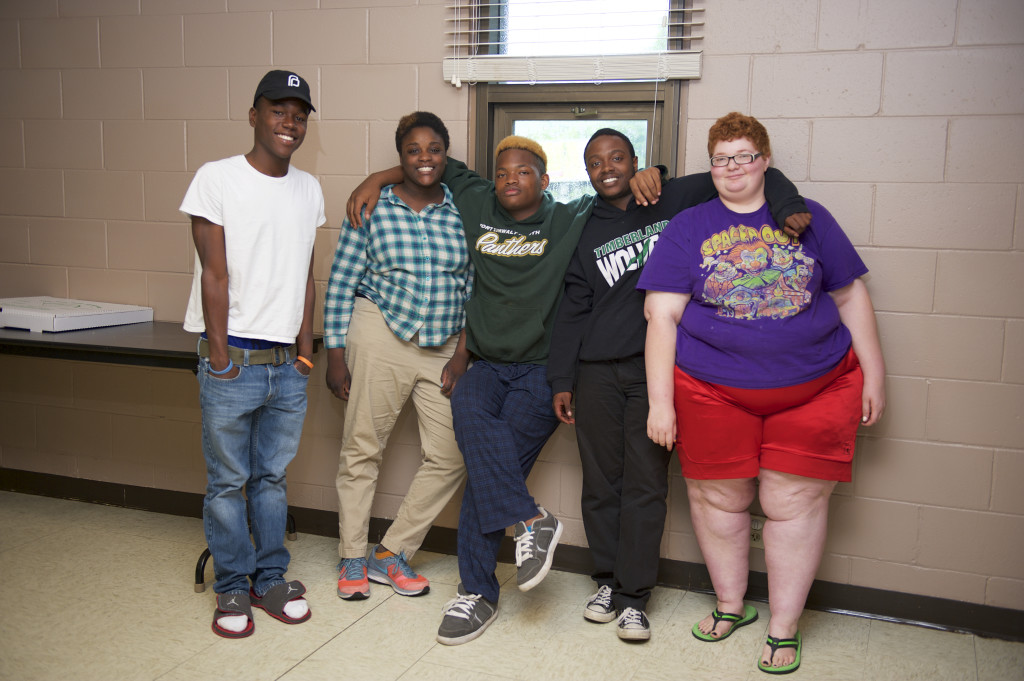
Photo by Lindy Drew
What the group did agree on was agency. Each of them had to take responsibility for choices; individual decisions would affect their communities; and change would require their participation. Perhaps most notably, when asked about hopes for their own futures, the youth pointed to educational access, safe neighborhoods, and opportunity unlimited by racism… but their visions for better was tied up with their desires for those coming up after them:
“I want to be able to see my little brothers graduate and walk across the stage, and not be in a gang, or be a fake gang, or claim they’re from wherever. I just want to be able to see them do that… “
“I want to see the next generation – like for my little sisters and little cousins – to grow up and not have the generation we had.”
Nurturing conditions that will make St. Louis a region where all can live, learn, and thrive from birth through adulthood is a long-term project that’s not something adults can take up on behalf of youth. Instead, it’s one must include youth, too. Their voices reflect all the variation we see and expect from grown-ups, yet don’t necessarily anticipate from young people. And that means missing out on crucial insights that ultimately benefit everyone.
There’s a great deal adults have to learn from, and about, youth who want to be heard. How, and where, are they already speaking? What other avenues can be created to hear more of their voices. How serious are we about listening, and acting upon what’s heard?
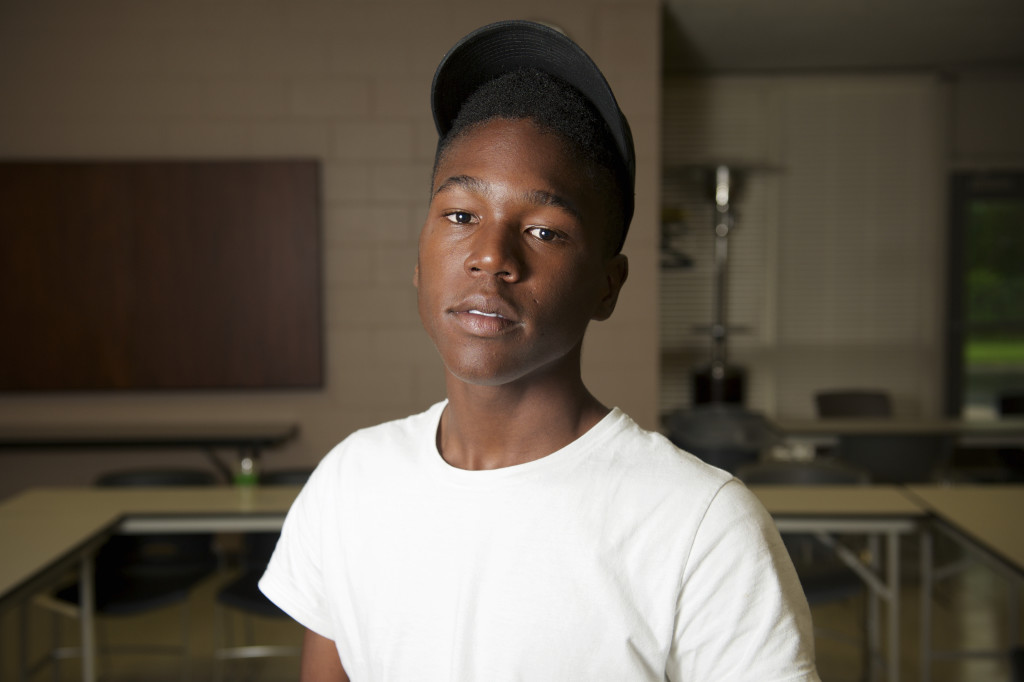
Photo by Lindy Drew
By Elaine Cha for #FwdThruFerguson
